Crafting Positive Consumer Attitudes about Agriculture
Consumer attitudes toward modern food production technologies can be significantly improved by providing information from credible sources that helps consumers understand the broader social benefits of today’s systems, according to new research from the Center for Food Integrity (CFI). A new approach tested in CFI’s 2012 Consumer Trust in the Food System study resulted in significant increases in support for certain modern farming technologies.
October 4, 2012

Consumer attitudes toward modern food production technologies can be significantly improved by providing information from credible sources that helps consumers understand the broader social benefits of today’s systems, according to new research from the Center for Food Integrity (CFI). A new approach tested in CFI’s 2012 Consumer Trust in the Food System study resulted in significant increases in support for certain modern farming technologies.
An online survey of 2,001 people this summer measured attitudes toward five technologies commonly used in today’s farming systems. Attitudes were then re-measured after the participants were provided messages that detailed the environmental, social or animal well-being benefits from credible sources.
The study showed double-digit increases in positive attitudes toward genetically modified crops, antibiotic use in meat animals and indoor food animal production.
“This data gives us a better understanding of the kinds of messaging we can use to move the needle in a positive direction,” says Charlie Arnot, CEO at CFI. “This data shows us the things we can say to consumers that actually increase support for the kinds of production practices in place today on farms that allow us to produce more food using fewer resources. Our focus this year was finding compelling ways to convey that today’s food system is better aligned with mainstream values than many realize.”
Some of the messages that were most effective in changing consumer attitudes would be considered basic information to those familiar with modern farming techniques. For example, informing survey participants that raising food animals indoors protects them from predators and bad weather resulted in a significant improvement in positive attitudes, as did messages that using GM seeds reduces the use of water, fuel and greenhouse gas emissions.
“This might be painfully obvious to some,” Arnot says. “But if we don’t talk about these positive attributes they may not be perceived as benefits by a public that is largely unfamiliar with agriculture.”
Among other survey findings:
• When food safety questions arise, just under half (45%) of consumers search for more information online.
• Facebook is the number one Internet connection site for food bloggers.
• Consumer concern about food safety is up 5% compared to a year ago, while concern about the economy, rising health care costs and rising energy prices is up only 2% or less
CFI’s previous five years of research yielded significant insight into how to enhance consumer trust in today’s agriculture and food system. The organization’s peer reviewed and published trust model proves that shared values (and in turn, confidence) are three to five times more important than demonstrating technical competence in building trust.
“This year we segmented the population by Values Orientation and we targeted Early Adopters. Since shared values drive trust, we need to be able to better understand consumer attitudes based on their Values Orientation. In addition, targeting Early Adopters helps us connect with information-seeking consumers who will drive public sentiment on food issues,” Arnot says. “Giving Early Adopters information from sources they consider credible has a positive impact on their attitudes and opinions.”
This year’s study is funded by the Foundation for Food Integrity, a non-profit foundation created to conduct research and provide educational outreach about today’s food system. A detailed look at the new study will be one of the highlights at the upcoming Food Integrity Summit, taking place Oct. 23-24 in Chicago.
The Center for Food Integrity is a not-for-profit corporation established to build consumer trust and confidence in the today’s food system. Our members, who represent every segment of the food system, are committed to providing accurate information and addressing important issues among all food system stakeholders. The Center does not lobby or advocate for individual food companies or brands. For more information, visit http://www.foodintegrity.org.
You May Also Like



